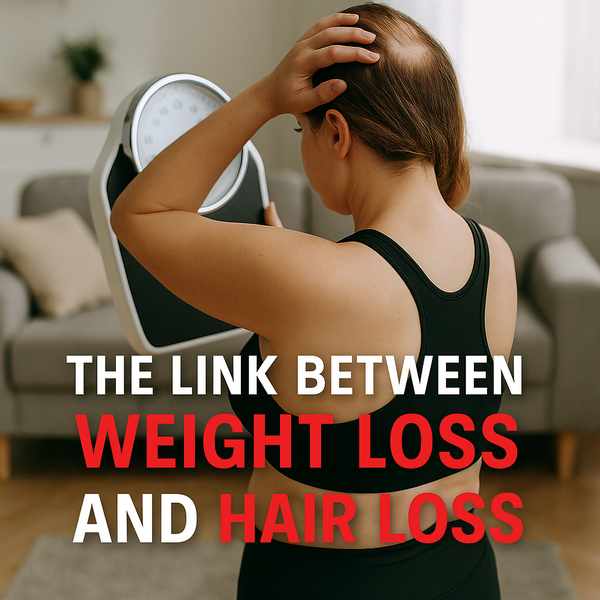
So what’s the connection between weight loss and hair loss, and how can you manage both successfully?
Understanding why this happens and how to protect your hair can help you reach your goals without compromising your confidence.
What Causes Hair Loss After Losing Weight?
Hair loss during weight loss is usually a result of physical stress or nutritional deficiencies.
Common causes include:
- Nutrient deficiencies
- Body enters stress mode
- Shifts in metabolism or thyroid function
- The body reacts to sudden changes
Understanding Telogen Effluvium
It’s a temporary condition where hair enters the shedding phase prematurely.
Key facts:
- Usually occurs 2–3 months after weight loss begins
- Hair falls out evenly across the scalp
- Hair usually grows back with time
Eat for Hair, Not Just Fat Loss
If you're trying to lose weight, be sure not to miss these nutrients:
- Protein
- Iron
- Biotin and other B vitamins
- Zinc
- Linked to healthy follicles and hormonal balance
Skipping meals or using crash diets can easily lead to deficiencies that trigger hair loss.
Can You Prevent Hair Loss While Losing Weight?
You don’t have to choose between losing weight and keeping your hair.
Tips include:
- Lose weight gradually
- Focus on whole, balanced meals
- Especially during calorie restriction
- Both affect hormones and hair health
- Stay hydrated
How to Manage Hair Loss During Your Journey
If you notice excessive shedding:
- Don’t panic
- Get bloodwork done
- Focus on protein and iron intake
- Avoid tight hairstyles and harsh products
- Be patient
Should You Talk to a Doctor?
If hair loss continues beyond 6 months or worsens significantly, it's a good idea to consult a healthcare provider.
- Thyroid dysfunction
- Autoimmune conditions
- Need professional correction
Conclusion
By understanding what’s happening inside your body, you can take steps to protect your health — and your hair.
Prioritize nourishment, patience, and consistency, and your body will click here thank you — from head to toe.